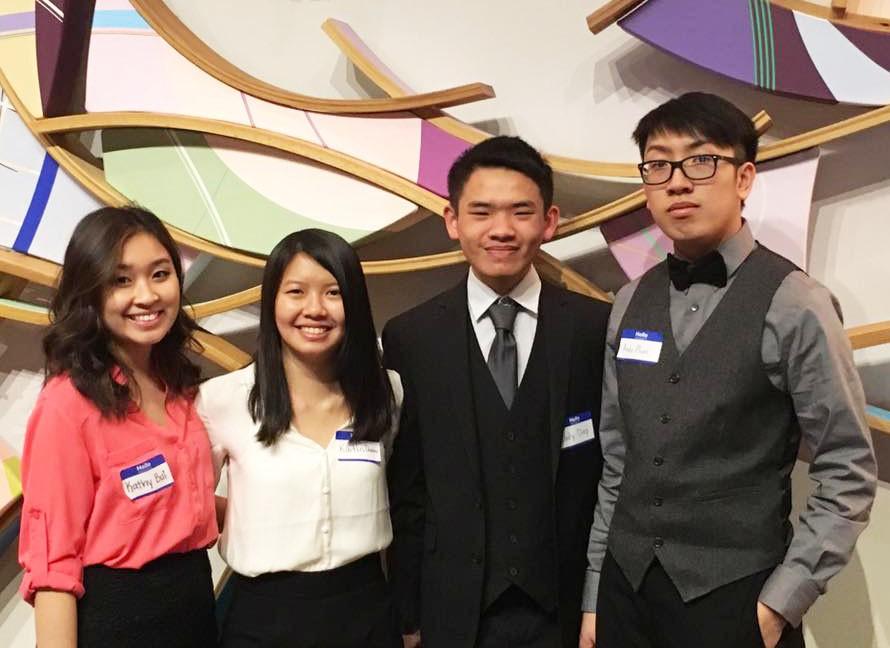Annual RICE Conference combats racial injustice

GVL / Courtesy – GVSU Asian Student Union
Mar 16, 2017
Imagine Chinese-American food served to a Chinese audience or Mississippi banjo music all sung in Mandarin Chinese. These are some of the collaborative efforts between American and Asian communities that inspire Caleb Sawin, president of the Grand Valley State University Chinese Language and Culture club.
“What I’m looking at is ways that the majority of white Americans and minority of Asian Americans can meaningfully and respectfully collaborate,” he said. “I’m looking at better ways to be American.”
Sawin has frequently studied the different ways these communities have collaborated in the past, such as music and restauranteur efforts. He is now eager to open more lines of communication on campus by participating in the Asian Student Union’s annual Realizing and Addressing Issues in our Culture and Education (RICE) Conference.
The broader goal of the conference is to combat racial injustices faced by Asian and Asian American peoples in the U.S. Sawin said not many Americans are aware there is a difference between Chinese and Vietnamese, or even between different regions throughout China.
The RICE Conference will address these stereotypes, as well as judgments of Asian people as a model minority. As Sawin said, Asian people are a minority because a distinct separation exists between poverty and the education level within southern and eastern Asian communities.
However, the Eastern communities overshadow the others, therefore dominating the conversation and reinforcing the stereotypes that are common in the U.S.
“I wouldn’t doubt that many of these issues are lost in the broader conversation,” Sawin said. “Specifically for issues in America dealing with race, those issues fall to the wayside.”
For Kathy Bui, president of the Asian Student Union (ASU), harmful stereotypes projected on Asian Americans invalidate the struggles they face—struggles that are often invisible. She said placing Asian people in a “model minority” category only allows people to see the successes of the community, rather than the entire picture.
“People don’t normally like to talk about this because it’s not a huge problem,” she said. “But to us, as Asian Americans, it’s a problem and a problem is a problem no matter how big or little it is.”
This year’s RICE Conference will also combat other issues Asian Americans face while opening lines of communication between attendees and different communities on campus.
Two keynote speakers will perform spoken word poetry and stand-up comedy. Conference sessions will address whether the model minority is a myth, cross-cultural exchange, reclaiming of Asian narratives and a post-election discussion on the dwindling amount of Asian American voters.
The RICE Conference will take place Saturday, March 19, from 9 a.m. to 4 p.m at the DeVos Center’s Loosemore Auditorium. It is free to students who register and following the event, attendees are invited to dine out with ASU members.
In the future, both Sawin and Bui hope to see conscious effort on campus in education around Asian American communities. In addition, both look forward to more collaborations between equally unique communities.
For those who want to learn more, the ASU meets Wednesdays at 6 p.m., and the Chinese Language and Culture Club meets Thursdays at 5 p.m.

























